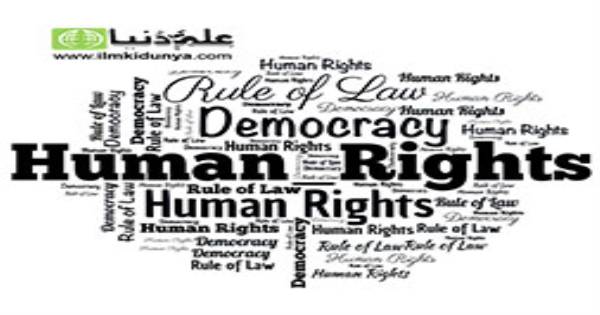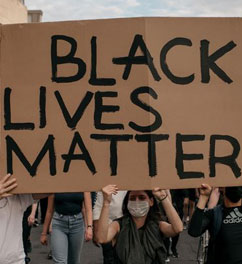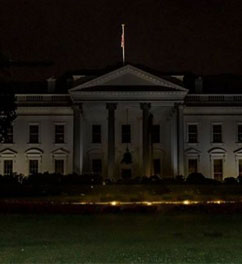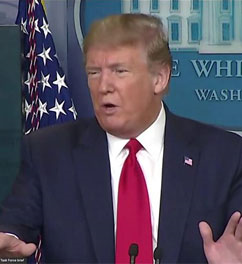It we call this century a century dominated by Media, it will not be wrong. Media`s growing influence, in this century, has changed many existing concepts about its role. The remarkable achievements of media in this century of globalization are Arab revolution and Wikileaks scandal. In Arab revolution, where media sticking to its role in true sense that is to inform people about what is happening around them and provide them a forum to unite their ideas regarding the things happening around them, brought some fruitful results for those nations, and they (some of the nations like Egypt and Tunis) achieved freedom from dictatorship, in other words restored national security. On the other hand in Wikileaks scandal, Wikileaks, an organization, put United States of America`s national security at stake through releasing of classical military documents. Besides, it posed a threat to national security of various other states through release of secret official documents. Dichotomy present in the role of media with respect to national security has raised many questions. Among these questions, the question which we are today posed, is whether free media is a threat to national security or it is something which reinforces national security. The question raised is replete with some controversial terms that are: “Free media” and “National Security”. This article first wants to let you know what a free media means. Then, it defines national security and the new concept of National security in the present world. How free media collides in its role with national interest, has been analyzed after giving the proper connotation to key terms in the topic that are: “Free Media” and “National Security”. Law and Media contribute to National security through their roles, but the same Law and Media sometimes pose a threat to National security. Whether Law and Media can become a threat to National security, will be analyzed in this essay. Besides, a bird`s eye view of media`s performance in Pakistan with respect to national security will be taken in later portion of this essay. This essay also wants to justify that national security is at stake neither because of law nor because of free media but it is because of those committing abuse of law.
Before going to the connotation of “Free Media” in today’s topic, let me give a bird’s eye view of Media’s origin and its role. According to the law of nature, this world does not believe in static mode. It tends to believe in changes, day in day out, which lets nations enter a new phase where they cope with new challenges. In the past, people used communication system as a mean of creating integrity with in while copying with challenges brought by nature. Through communication, they would try to reach a pragmatic solution to the posed challenges. Today in this world, Media has shouldered responsibility to help people in reaching to solution of a problem. According to Willbur Schramm, Media is a watcher, it keeps people informed about what is happening around them, a forum, it provides people a forum to narrow friction among themselves regarding issues, and a teacher, because it passes on a social heritage of a nation from one generation to another. Keeping in view the three roles of Media as a watcher, teacher and forum one comes to conclusion that media is not only supposed to inform people but also to give orientation to people`s thoughts. Now coming back to controversial phrase “Free Media”, question comes to mind whether media with its three roles which seem very positive, be given free hand or have some parameters within it should work. “Free Media” definitely means a media where freedom of expression is not barred but the connotation that is being given in this article to Free Media is that, media should be impartial and responsible in its role and should be free from abuse of law. It means that while performing its three roles, it should be impartial in the sense that it should not be polarized while giving coverage which is very difficult to maintain and secondly what ever it reports, it should keep in view the values of a nation for which it is working for. Free from abuse of law means that it should be free from all those laws that does not allow media to perform its role with respect to national security.
Before, going to approach of free media towards national security, let`s go through the concept of national security and things coming in the concept of national security.
A typical dictionary definition from Macmillan dictionary defines the national security as, “the protection or the safety of the country’s secretes and its citizens.”
Harold Lasewell, a political scientist, in 1950 defined it as, “National security means freedom from foreign dictation”.
Harold Brown, U.S Secretary of Defense from 1977 to 1981 in the Carter administration, enlarged definition of national security by including elements such as environmental and economic security as, “National Security is the ability to preserve the nation’s physical integrity and territory; to maintain its economic relations with rest of the world on reasonable terms, to preserve its nature, institution and governance from disruption from outside, and to control its borders.”
Harvard History professor Charles Maier’s defines national security through the lens of national power that is, “National Security ................. is best described as a capacity to control those domestic and foreign conditions that the public opinion of a given community believes necessary to enjoy its own self-determination or autonomy, prosperity and well-being.”
As an academic concept, National security was introduced in US after World War II, and was only defined solely in terms of military security. Now its concept has been manipulated and has embodied many non-strategic concepts of security that is socio-economic security. It means that ensuring national security in the contemporary world does not only mean to preserve a nation from external threat but it also needs to be preserved internally through the maintenance of values that a nation believes in the fields of politics, economics, environment, culture and religion etc..These values determine the norms which are guided by rules and determine human conduct. Connotation of national Security other than military one was a concept existing before but it was understated.
Gen Maxwell Taylor’s essay of 1974 titled, “The Legitimate Claims of National Security” says about national security, “The national valuables in this broad sense include current assets and national interests, as well as the sources of strength upon which our future as a national depends. Some valuables are tangible and earthy; others are spiritual and intellectual. They range widely from political assets such as the Bill of Rights, out political institutions and international friendships to many economic assets which radiate worldwide from a highly productive domestic economy supported by rich natural resources. It is the urgent need to protect valuables such as legitimizes and makes essential the role of national security”.
The new concept of national security encompasses many other securities for the security of a nation other than military security.
These are
i. Political Security
ii. Economic Security
iii. Environmental Security
iv. Security of energy and national resources.
The security that dominated the sphere of national security in the beginning, is military security which means capability of a nation to defend itself and /or deter military aggression or the capability of nation to enforce its policy choices by use of military force. The political aspect of security as offered by Barry Buzar Old Waever Jaap De Wilde as an important component of national security, political security is about stability of social order. Economic
stability in today’s globalised world is the freedom to follow choices of policies to develop a nation’s economy in the manner desired. Environmental security deals with environmental issues which threaten the national security of a nation in any manner. Security of natural resources (water, land and mineral) and energy resources is also very important because any deaf ear approach or irresponsible approach to its coverage may threaten the security of a nation.
The above portion of this article tried to make you clear about the connotation of Free Media and National Security. Now let us develop a link between free Media and National Security. The thing that we need to know first before we substantiate “Free media is not a threat to national security”, can free media contribute to national security? According to Harold Lasswell , media `s basic function deals with communication. That is, to tell people, who says what in the society, to Whom, When and How. In performing this basic function, the mass media performs various tasks that have been divided into four functions by Wright (1960) and quoted in Akindele and Lamidi (2001).
These are:
(1) Surveillance
(2) Correlation of facts of the environment
(3) Transmission of heritage
(4) Entertainment
Surveillance in terms of media means that media extracts such information from society for coverage which, it considers, interests people. In correlation of facts, the media acts to mediate even the taste of the people ,because they interpret the information so gathered keeping in view its affecting nature, by sifting and discarding what may not be in the interest of the people before purveying such information to them. By such interpretation, they help in the creation of values (for culture), which are then transmitted from generation to generation. The three functions of the mass media, explained above, if closely examined, would reveal the role of the media in fostering national security. First, by effective surveillance of the environment, the mass media would unveil those areas, individuals or entities that may likely constitute a breach of national security. Secondly, through correlation of facts of the environment, media helps in generating values that determine norms. Thirdly, by transmission of culture, the media enhances the entrenchment of those norms, the defense of which constitutes national security; thus media can contribute to national security through its roles that have been mentioned above.
To conduct human conduct within the bounds of human civilization and to maintain norms of society intact, nations have tried to approach law. Law has been defined as the body of rules enacted to guide human conduct in any particular society. Media and law find each other on the same page while striving for the maintenance of values embedded in the concept of National security, but sometimes media and law find themselves at variance in pursuance of attainment of national security. This is actually the abuse of law that makes media and law at loggerheads with respect to their approaches to national security. Abuse of law comes from those sitting in power. Neither law poses a threat to national security nor media poses a threat to national security. Only those committing abuse of law, those who are in government, pose a threat to national security. Abuse of law not only challenges media in its role with respect to national values but also poses a threat to the essence of law itself that preserves national values embedded in national security; as a result, it also poses a threat to national security.
The gist of law is to harmonize human conduct with respect to values prevailing in a particular society. Today in some parts of the world, law has lost its essence because of the law makers. Those law makers want to exploit law in the name of national security for their vested interests and through this attitude, they are posing media to be a threat to national security. How do they do it? Since law and media find themselves on the same page when it comes to preservation of values in national security, so when law , constituted by law makers for their vested interests, does not contribute to national security although it is claimed that it will, and media contributes to national security by performing its role , then law , as considered a bastion of national security more than media , resorts to undermine media through formulation of such laws which stop media from unfolding the threat posed by government to national security. In such a situation, media is in the middle of no where that is whether to keep dancing attendance on those who,being in power, are posing a threat to national security under the cover of law or to avoid the law makers` ,who are exploiting law for their vested interests, priorities and perform its duty by unfolding the threat that law makers` pose to national security. Since no one is above law so at the end of the day, media has to bow down to law made for the vested interests of those in power and thus media is posed as a threat to national security by not allowing it to uphold national values.
Nobody can deny the fact that national security is at stake because of national leaders, but it is not always the case; sometimes, media itself poses a threat to national security. Sometimes, media operators breach the law while serving national security in a zealous pursuance of the need for effective surveillance. A case of this type took place in 1984 when Tunde Thompson and Noduke Irber , both of the Guardian, were arrested and charged for publishing facts, regarded by the government as official secrets. Despite the brilliant arguments of their lawyers, Chief Rotimi as to the validity of their their action, the government was not convinced and they were jailed for one year. Cases of media itself posing a threat to national security are rare. In majority of the cases where media channels are posing a threat to national security, media channels are run by those who either want to survive in power or want to achieve power.
Now let`s analyze the role of media in Pakistan. The Pakistani Constitution limits Censorship in Pakistan, but allows "reasonable restrictions in the interests of the sovereignty and integrity of Pakistan or public order or morality". Where does the interests of the sovereignty and integrity of Pakistan or public order or morality start, this has not been clearly defined by those deciding the interests of Pakistan. Till 1998, electronic media especially was under the influence of state, so it did not contribute well to the national security by only following those in power. In 2002, Media gained boom during President Musharraf`s regime because private channels were given permission. Not only that media was given a chance to strengthen national security through its role but also to let media work under the bounds of law, Pakistan Electronic Media Regulatory Organization (PEMRA) was established on March 1, 2002. It is responsible for facilitating and regulating the establishment and operation of all private broadcast media and distribution services in Pakistan for the purpose of national, international, provincial, district and local or special target audiences. It ensures accountability, transparency and good governance by optimizing the free flow of information. Since media has been brought under the patronage of PEMRA, its overall performance with respect to national security is commendable. Since establishment of PEMRA, media has been quite responsible and has given to some incidents a very responsible coverage keeping in view the national security i-e PNS Mehran Security debacle. In PNS Mehran Security debacle, majority channels resorted to interpret that parliament is trying to know the basic cause of this debacle through fact-finding commission; however, there were some channels who leaned on a simple calculus of whom does it benefit and came up with a conclusion that India together with US and Israel had done it; thus, they put national security at stake by stimulating people to chant a slogan of no relation with US although no clear evidence was found out at that time. PEMRA showed responsibility and stopped those channels from giving coverage to PNS Mehran Security debacle. On 22 April 2007 PEMRA threatened the private television channel AaJ TV with closure for airing news, talk shows, and other programs that discussed the then current judicial crisis. PEMRA warned all private TV channels not to air programs casting aspersions on the judiciary or on the “integrity of the armed forces of Pakistan”, as well as content which would encourage and incite violence, contained anything against the maintenance of law and order, or which promoted anti-national or anti-state attitudes. In Pakistan, media is still the victim of abuse of law and is facing in performing its role. In August 2003, President Musharraf introduced a series of new press laws, which he called reform measures but which could be used to limit press freedom. Besides, it is also facing problems because of some elements like intelligence agencies working in Pakistan which in the name of so-called national security kill media operators i-e On November 18, the body of journalist Lala Hameed Baloch, who had been kidnapped in late October, was found along with the body of a second journalist, Hameed Ismail, with gunshot wounds outside of Turbat, Balochistan Province. Baloch's family, local journalists, and the Pakistan Federal Union of Journalists believed that he was seized by security officials and targeted for his political activism.
Since the scope of National Security has been broadened through its new concept that says that national security does not mean only to save one`s country from external threat in the form of military but it also includes the values to be preserved domestically in various fields that are politics, economics, environment and religion etc, so national security is vulnerable to the attacks from various sides. Law and media have common goal that is to ensure national security, so neither law poses a threat to national security nor media does. It is actually those ,who commit abuse of law , pose a threat to national security through formulation of laws for their vested interests which prevent media from performing its actual role and in turn pose media as a threat to national security since media has to work under laws made for the vested interests by those in power. Abuse of media by media operators themselves can pose a threat to new concept of national security but this can be controlled through constitution of organizations like PEMRA. In nutshell, national security is always at stake because of those committing abuse of law and those exercising abuse of law are actually leaders of the country; it means that they are in government. There can never be any threat to national security from free media, that is impartial and responsible media, if the country`s leadership is committed to defend values in all fields that come in the arena of national security, and seek to establish egalitarian society that is just and fair to everyone. What law makers should do , is not to go for laws which are inimical to human dignity. Besides, media should show impartiality and responsibility in its coverage keeping in view the values embedded in national security. Keeping in view the protection of values embedded in a certain law, media should follow it. Those laws that prevent journalism to be in actual shape, should be repudiated. Besides Media should work with this principle in mind: “ Purvey information with respect for human dignity. Such defense means the defense of national values.”











































